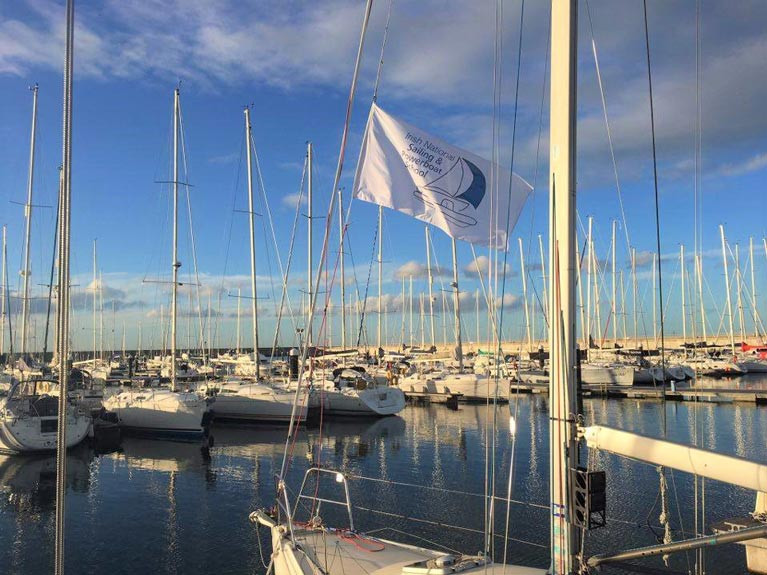The first in a series of short online courses at the Irish National Sailing & Powerboat School takes place this evening (Thursday) from 7 pm. Chief instructor Kenneth Rumball will be presenting a review of preparing a yacht for cruising or racing.
Next week, Kenneth will run a two-session course, on Tuesday 12th and Thursday 14th May running for two hours each evening covering “Skippering in Tidal Waters”. This course was specifically launched in response to feedback received by the school to their “Attitudes to Yacht Charter in Ireland” survey, where a number of respondents felt that Irish tides would be too much of a challenge compared to relatively easier waters of the Mediterranean.
The popular short course, Dinghy Race Tactics and Strategy, will run in an online format on Tuesday 12th, Wednesday 13th and Thursday 14th May for 2 hours each evening. Kenenth will lead the course and audience interaction and questions encouraged. Equally, although a camera or microphone is required to join - you can simply relax, view the slides and listen to the presenter as he explains both rules and strategy, and how it applies to real-life scenarios.
The courses are open to all, and everyone is welcome. Families are encouraged to all join in from one booking and the team at the school are looking forward to seeing everyone, even if only online for now!
Link to courses here



























































